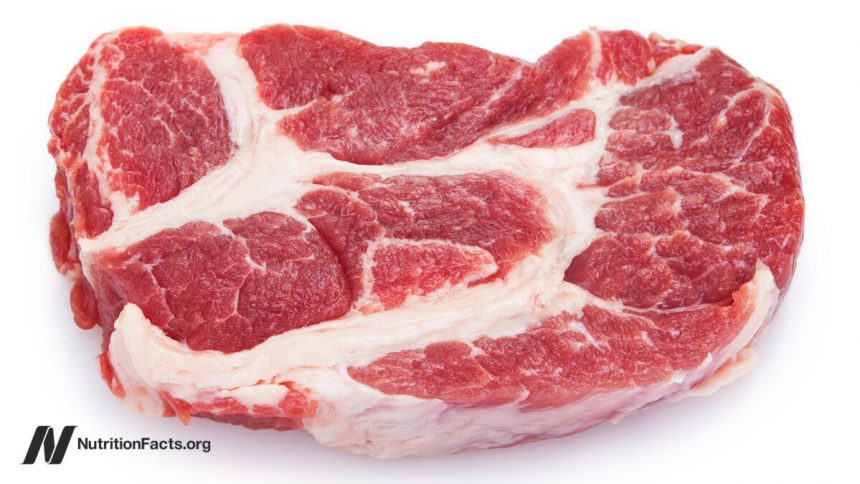How can we explain the drop in stroke risk as the Japanese diet became westernized with more meat and dairy? As Japan westernized, the country’s stroke rate plummeted, as shown in the graph below and at 0:15 in my video Vegetarians and Stroke Risk Factors: Saturated Fat? Stroke had been a leading cause of death in Japan, but the mortality rate decreased sharply as they moved away from their traditional diets and started eating more like those in the West. Did the consumption of all that extra meat and dairy have a protective effect? After all, their intake of animal fat and animal protein was going up at the same time their stroke rates were going down, as shown below and at 0:35 in my video.
A noted Loma Linda cardiology professor commented, “Protection from stroke by eating animal foods? Surely not!…Many vegetarians, like myself, have almost come to expect the data to indicate that they have an advantage, whatever the disease that is being considered. Thus, it is disquieting to find evidence in a quite different direction for at least one subtype of stroke.” Can dietary saturated fat, like that found in meat and dairy, be beneficial in preventing stroke risk? There appeared to be a protective association—but only in East Asian populations, as you can see below and at 1:11 in my video.
High dietary saturated fat was found to be associated with a lower risk of stroke in Japanese but not in non-Japanese. So, what was it about the traditional Japanese diet that the westernization of their eating habits made things better when it came to stroke risk? Well, at the same time, their meat and dairy intake was going up, and their salt intake was going down, as you can see below and at 1:40.
The traditional Japanese diet was packed with salt, and they had some of the highest salt intakes in the world. Before refrigeration became widely available, they ate all sorts of salted, pickled, and fermented foods. In the areas with twice the salt intake, they had twice the stroke mortality, but when the salt intake dropped, so did the stroke death rates, because when the salt consumption went down, their blood pressure went down, too. High blood pressure is a major risk factor for stroke, so it’s no surprise why the westernization of the Japanese diet led to a drop in stroke risk.
When they abandoned their traditional diets, their obesity rates went up, as did their diabetes and coronary artery disease. However, as they gave up the insanely high salt intake, their stroke rates correspondingly fell. Stomach cancer, closely associated with excess salt intake, also decreased as they shifted away from salt-preserved foods.
Although Japanese stroke and stomach cancer rates were higher, they were likely due to the excessive salt intake rather than a protective role of animal fat. The official Japanese guidelines for preventing cardiovascular disease even recommend refraining from consuming large amounts of fatty meat, animal fat, eggs, and processed foods.
Studies have shown that lower cholesterol levels reduce stroke risk overall, with no significant increase in hemorrhagic stroke risk. The genetic data on cholesterol and stroke risk are mixed, but lower cholesterol levels are generally protective against clotting type strokes.
Research continues to search for a protective factor in animal foods that can prevent heart disease without increasing stroke risk. The hunt for this factor is ongoing.
Explore more on the correlation between saturated fat and stroke risk in vegetarians in the video here.






